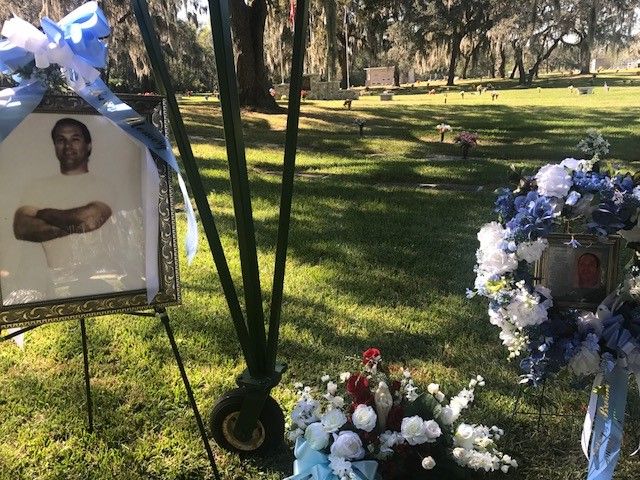In coming months the Florida Supreme Court will be transformed by the appointment of four (of the seven) new Justices, giving Governor Charlie Crist an unprecedented opportunity to reform the Court in his own conservative ideological image. Governor Crist is a career politician who has spent many years earning the name “chain gang Charlie” as both the state representative, then a state senator before being elected as Florida’s Attorney General prior to then becoming Florida’s elected Governor.
Throughout Governor Crist’s long political career, he has aggressively supported the death penalty and has used his political influence to push for expanding the use of the death penalty as well as expressing his favor for limiting appellate review in capital cases. As the Attorney general, Governor Crist served on the Florida Cabinet for 8 years, not even once voting to grant clemency in a capital case.
With the unique opportunity to now hand-pick fellow pro-death conservatives to the Florida Supreme Court the manner in which capital cases are reviewed and decided could significantly change.
Under Florida’s constitution all capital cases in which the defendant is sentenced to death must be directly reviewed by the Florida Supreme Court. Additionally, although state post conviction appeals are typically filed in the lower state circuit courts where the original trial was held, any decision rendered by these lower courts are then appealable by the Florida Supreme Court.
Under these constitutionally established rules, to be granted relief before the Florida Supreme Court, at least four of the seven justices must agree. For this reason Governor Crist’s appointment of four of the seven Justices could prove to completely preclude any possibility of being granted relief before the state courts.
As an indication of Governor Crist’s intent to stack the Florida Supreme Court with pro death penalty conservatives, much like President George Bush has done with the US Supreme Court, following the recent resignation of Justice Raoul Cantero, Governor Crist announced that his first appointment to the Court would be none other then Charles T Canady.
According to the Florida Bar News (September 15, 2008) in 1979 Charles Canady graduated from Yale University Law School (as did President George W Bush) then went into private practice at several law firms in Florida before being elected to the Florida house of Representatives in 1984 and serving in that position until 1990.
A longtime personal friend and conservative Republican colleague of Governor Crist, Charles Canady the was elected to the US Congress, serving as the elected Representative for the district encompassing Lakeland and other area’s of central Florida from 1992 to 2000.
After proving his conservative political ideology in Congress, former Republican Governor Jed Bush appointed Charles Canaby as his “general counsel” during his first year as Florida’s Governor. While serving in this position Canady was instrumental in pushing through the “Death Penalty Reform Act of 2000”, which was passed by the state legislature, then signed into law by Governor Jeb Bush.
However, the Florida Supreme Court subsequently declared this “Death Penalty Reform Act of 2000” to be unconstitutional by concluding that the Florida legislative cannot promulgate rules governing court procedure.
Had the Canady-created “Death Penalty Reform Act of 2000” gone into effect, Florida would have adopted the general procedures used in the State of Texas to severely limit death row appeals, including prohibiting appeals based upon alleged new evidence, even if that evidence might conclusively prove the condemned man’s innocence.
With Charles Canady now appointed as a Justice on the Florida Supreme Court we can expect Canady to aggressively push for judicial adoption of rules that will severely limit death row appeals. Within the next six months Governor Crist will appoint three more new justices to the Court, ultimately reforming the Florida Supreme Court in his own ideological image.
Within the next few weeks, it is anticipated that Governor Crist will announce his appointment to replace retiring Justice Bell. Then in January, 2009 Justice Anstead will be forced into retirement under Florida’s law requiring retirement at age 70. Last, in March, 2009 Justice Wells will also be forced into retirement when he too turns 70. So within the next 6 months Governor Crist will have appointed the majority of the Justices that will sit on the Florida Supreme Court for many years to come. If the next three appointments reflect the conservative pro-death penalty agenda long embraced by Justice Canady, then within the foreseeable future Florida can become a mirror-image of Texas..
Subscribe to:
Post Comments (Atom)













No comments:
Post a Comment